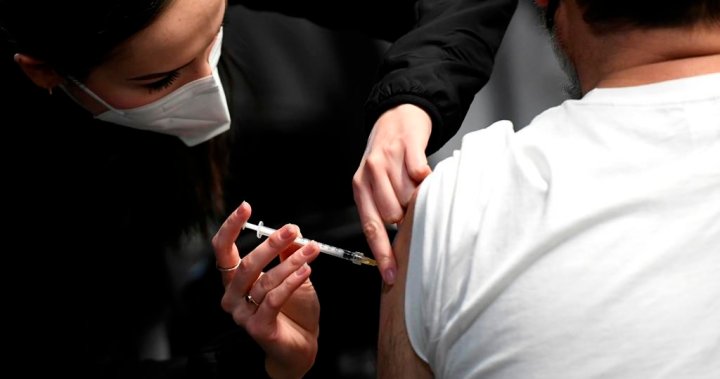
WHO now recommends high-risk people get COVID booster 12 months after last dose
Global News
The WHO on Tuesday changed its recommendations for COVID vaccines, suggesting that high-risk populations should receive an additional dose 12 months after their last booster.
The World Health Organization on Tuesday changed its recommendations for COVID-19 vaccines, suggesting that high-risk populations should receive an additional dose 12 months after their last booster.
The health agency defined high-risk populations as older adults, as well as younger people with other significant risk factors. For this group, the agency recommends an additional shot of the vaccine either 6 or 12 months after the latest dose, based on factors such as age and immunocompromising conditions.
The WHO defined the group including healthy children and adolescents as “low priority” and urged countries to consider factors like disease burden before recommending vaccination of this group.
The recommendations come as countries take differing approaches for their populations. Some high-income countries like the United Kingdom and Canada are already offering high-risk people COVID-19 boosters this spring, six months after their last dose.
The WHO said this was an option for a subset of people who were at particular risk, but its recommendations were intended as a best practice global guide.
NACI said that includes adults 80 and up, those living in long-term care homes and other congregate settings for seniors or those with complex medical needs.
It also advised adults 18 and older who are moderately to severely immunocompromised, either due to medical treatment or an underlying health condition, to get a booster shot.
The agency said its committee of experts had also said that additional booster vaccines for COVID beyond the initial series – two shots and a booster – were no longer routinely recommended for “medium risk” people.

Many kids and teens are looking forward to the holidays with great excitement, but others find it a difficult time of year filled with anxiety, stress and loneliness. It’s something Alisa Simon, the chief youth officer at Kids Help Phone, says they watch for when school pauses for the winter break, noting, “we do see an increase...










